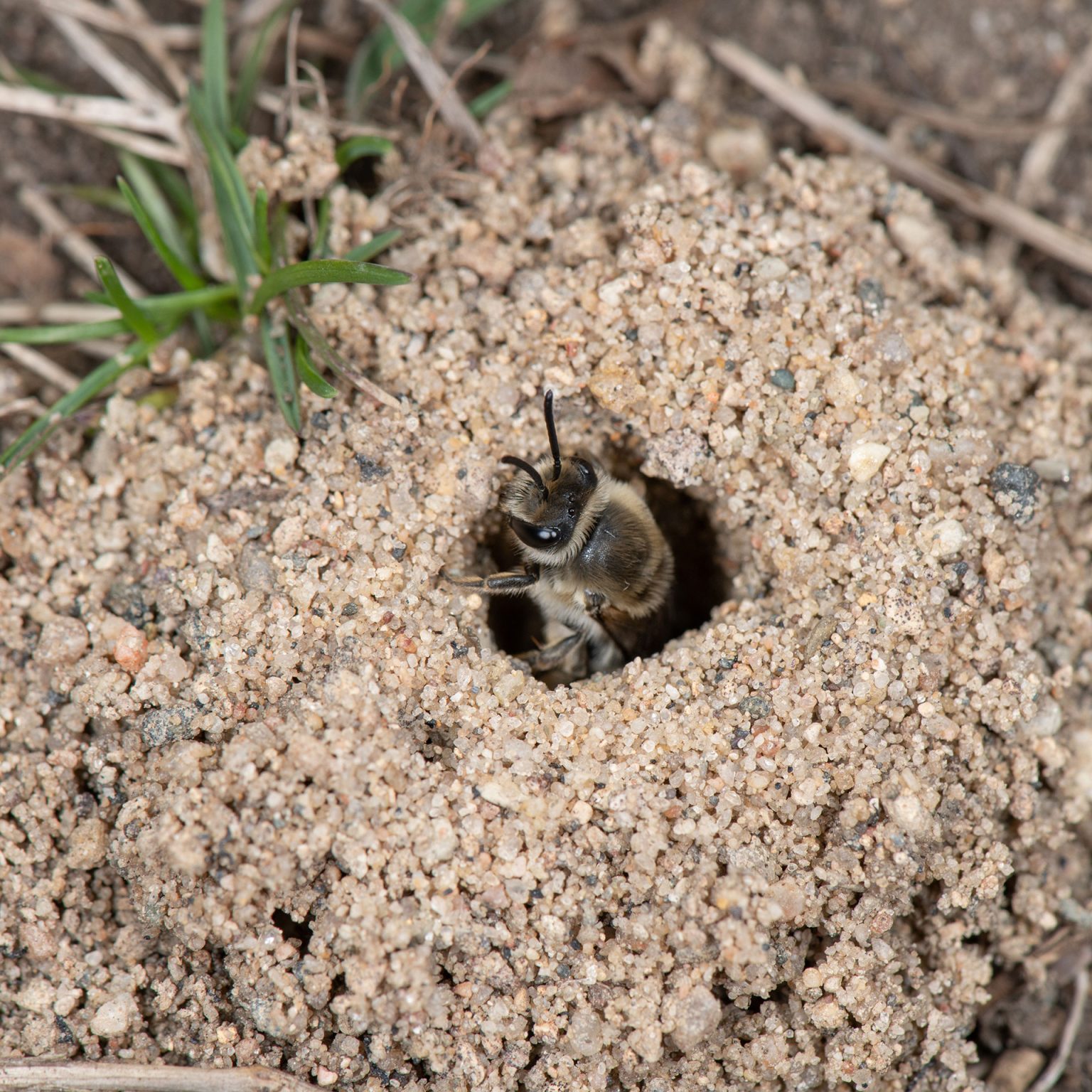Nesting Habits of Ground-Nesting Bees: What You Need to Know

As experts in pest control, we often encounter ground-nesting bees, which can be a source of curiosity and concern for many homeowners. Understanding their nesting habits is crucial for coexisting with these essential pollinators while keeping your property safe. Let’s explore what you need to know about the nesting habits of ground-nesting bees.
Understanding Ground-Nesting Bees
Contrary to popular belief, ground-nesting bees are generally harmless and play a vital role in pollination. Unlike honeybees or bumblebees, these solitary bees do not live in hives but rather create individual nests in the ground. Most ground-nesting bees in Massachusetts are solitary, meaning each female bee builds her nest without cooperation from others. They are also non-aggressive and unlikely to sting unless provoked.
Identifying Ground Bee Nests
Ground bee nests are often mistaken for ant hills. However, they can be identified by small mounds of earth with a hole in the center, resembling a tiny volcano. These nests are commonly found in well-drained, sandy soils and sunny areas. You might notice increased bee activity during the spring, their peak nesting season.
The Nesting Process
Each female bee selects a suitable spot, usually in dry, bare patches of the yard, and begins to dig a tunnel using her jaws and legs. These tunnels can be quite intricate, with multiple chambers where the bee lays eggs. The mother bee then forages for pollen and nectar to create a food supply for her offspring. Once provisioned, she seals off the chamber, and the cycle continues until she has laid all her eggs.
Benefits of Ground-Nesting Bees
Ground-nesting bees are excellent pollinators, often more efficient than honeybees for certain plants and flowers. Their activity helps maintain healthy ecosystems and contributes to the biodiversity of your garden. They pollinate various plants, ensuring the beauty and health of your landscaping.
Minimizing Conflict with Ground Bees
While ground-nesting bees are beneficial, their presence can be concerning, especially in areas with high foot traffic or near children’s play areas. To minimize conflict, consider the following:
- Maintain a Healthy Lawn: A well-maintained lawn with thick grass coverage leaves little room for bees to nest. Regular watering and fertilization can encourage grass growth, reducing bare spots.
- Create a Bee-Friendly Zone: Allocate a section of your yard for bees to nest away from your home and high-traffic areas. Planting bee-friendly flowers can attract them to this specific area.
- Natural Deterrents: Sometimes, simply watering the nesting areas can encourage bees to relocate, as they prefer dry soil.
When to Seek Professional Help
If ground bee nests pose a significant problem or if you’re dealing with aggressive species, it may be time to call in professionals. At The Bee Hunter, we specialize in safe, effective bee control that respects the ecological importance of these insects. Our methods focus on relocation and prevention, ensuring that your property is bee-free while contributing to conserving these crucial pollinators.
Ground-nesting bees are essential to our ecosystem and crucial in pollination. Understanding their nesting habits can help you appreciate their presence and coexist with them on your property. Suppose you find yourself in need of professional bee control in Massachusetts. In that case, The Bee Hunter is here to help with expert, eco-friendly solutions. Bees are our friends; with some knowledge and understanding, we can live harmoniously with them.
